Introduction
Circuit breakers are safety devices, which ensures the safety of equipment and personnel from electric shocks and damages. They are self-acting and should safely interrupt the current flow on the event of faults. Circuit breakers are a cost-effective and efficient alternative to traditional circuit protection fuses. These devices are reusable and may help in saving a lot of money and downtime.
Today we come across various types of circuit breakers. Each one of them is meant for a specific application. This makes the selection of the circuit breaker for a specific application a very important task. This article illustrates the different types of low voltage circuit protection devices available in the market and their functions.
MCB – Miniature Circuit Breaker
The miniature circuit breaker is a protection device that prevents damage to an equipment /circuit in the event of an overload or short circuit faults. During overload and short circuits excessive current flows to the load that may damage the equipment. Miniature circuit breakers sense such excessive currents and disconnect the load from the source, thus preventing greater damage to the load. The higher the intensity of fault quicker shall be the MCB action.
MCBs are most commonly used in the distribution board at home. MCBs can safely act during short circuits resulting in the current flow up to 15kA, depending on their short circuit breaking capacity. However, short-circuit breaking capacity of an MCB varies up to 15kA. Miniature circuit breakers can be used for the protection of lamps, home appliances, electronic devices, and equipment with low short-circuit currents. MCBs are available in single, double, triple, and four-pole versions and have continuous current ratings from 0.5A up to 100A.
Learn more: About the operation, selections and other features of Miniature Circuit Breakers (MCB) – Click Here
MCCB – Moulded Case Circuit breakers.
Similar to Miniature Circuit Breakers, Moulded Case Circuit Breakers are also overload and short circuit protection devices. Molded Case Circuit Breakers can withstand more short circuit current than miniature circuit breakers. Also, the continuous current rating of the same can be adjusted as per requirement. Some of these breakers also have inbuilt ground fault/ residual current protection features. MCCBs are equipped with trip units to sense and interrupt the current flowing through it. It -may be thermal or microprocessor-based units. Thermomagnetic trip units use the bimetallic strip for current sensing and operation and microprocessor-based units consist of built-in CTs for current sensing and operate the circuit breaker in the event of a fault.
MCCBs are mostly used in power distribution and protection of industrial equipment such as motor starters, drives, pumps, etc. MCCBs can have short-circuited current withstand capability up to 200kA (200,000A). It is available with a continuous current rating up to 2500A.
MPCB – Motor Protection Circuit Breaker
MPCB (Motor Protection Circuit Breaker) is a short circuit and overload protection device dedicated used for the safe operation of motors. But unlike MCCBs and MCBs, the trip characteristics of an MPCB allow the high inrush current during the motor start without allowing an overcurrent that may damage the motor winding. The short circuit capacity of MPCBs is very high compared to that of MCBs. Also, MPCBs are more compact than MCCBs. The overcurrent set point of the MPCB can be adjusted as required. Moreover, MPCBs can protect the motor against phase loss or phase imbalance. MPCBs once tripped has to be manually reset after the clearance of fault.
MPCBs are available only in three-pole versions and has a maximum short-circuit current withstand capability of 100kA. MPCBs is a cost-effective and efficient solution to conventional motor starters, which use fuse-thermal overload relay combinations.
RCCB/RCD – Residual Current Circuit Breaker/Residual current device
Residual current circuit breakers are devices that protect against electric shock. It senses earth leakages and residual currents and ensures protection against electric shock. RCCBs do not have overload and short circuit protection features built-in. Hence, they are used in combination with MCBs. RCCB is very common and can be found inside the power distribution board in homes.
RCCBs are available in four-pole and two-pole versions only. The leakage current sensing range differs from 30mA, 100mA, and 300mA. Also, continuous current ratings of 25A, 40A, 63A, 80A, 100A, and 125A are available. Since RCCBs do not protect against short circuits, it does not have short-circuit withstand rating. It is highly recommended to use a short circuit protection device such as MCB or MCCB in series with RCCB since any short circuit occurring inside the protection zone of RCCD can easily damage it.
RCBO – Residual Current Circuit Breaker with Overload
A residual current circuit breaker with overload (RCBO) is a combination of RCCB and MCB. It constitutes short circuit, overload, and residual current protection features. It is designed to withstand short circuit currents and has arc chutes within. RCDs are stand-alone devices and do not require MCB backup as in the case of RCCB.
It is used for the protection of devices like geysers, hairdryers etc. where the risk of electric shock and overload is more. RCBO is available in two poles and four-pole versions. The leakage current sensing range of RCBO ranges as 10Ma, 30mA, 100mA, and 300mA. Also, continuous current ratings of 25A, 40A, 63A, 80A, 100A, and 125A are available. The short circuit breaking capacity of an RCBO varies up to 15kA.
Isolator/ Disconnector
Isolators or disconnectors are devices used to isolate a circuit or equipment from the power supply during maintenance, in order to ensure the safety of the workman. Isolators are offload devices, meaning the current flow through the isolator should be zero before the operation. They do not offer any kind of protection to the circuit or device.
Switch disconnectors are also a type of isolator/ disconnector. But it can be operated on load. Isolators and switch disconnectors are less often used in low voltage systems. It can be commonly seen in substations and is used to isolate transformers from the service during maintenance.
Summary
MCB (Miniature Circuit Breaker) – Short circuit and overload protection device, commonly used in the protection of household devices and devices with low short-circuit currents.
MCCB (Moulded Case Circuit Breaker) – Short circuit and overload protection device, commonly used in the protection in low voltage power distribution and industrial applications.
MPCB (Motor Protection Circuit Breaker) – Short circuit, overload, and phase loss protection device, used in motor starters.
RCCB (Residual Current Circuit Breaker) – Provides protection again electric shock and residual currents.
RCBO (Residual Current Circuit Breaker with Overload) – Provides protection again electric shock, residual currents, short circuits, and overload, commonly used in the protection of household devices and devices with low short-circuit currents.
Isolator/ Disconnectors – Safety device, operated during maintenance/ service.
Related Articles:
1. Difference between MCB and MCCB
2. Difference between contactors and relays
3. Difference between Soft Starters and VFDs
4. Difference between MCCB and RCCB
5. Difference between MCB and RCBO
6. Difference between RCCB and RCBO
7. Difference between MPCB and MCCB
8. Difference between Isolator and Circuit Breaker
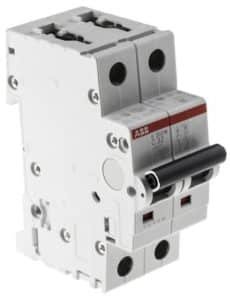
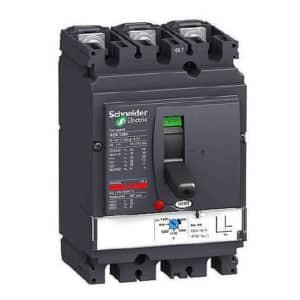
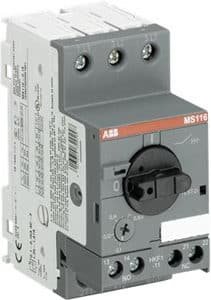
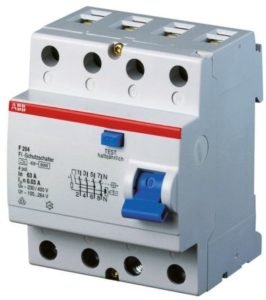
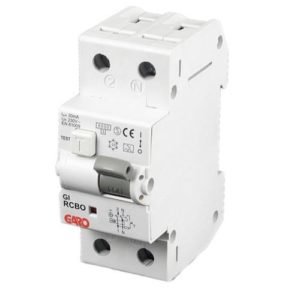
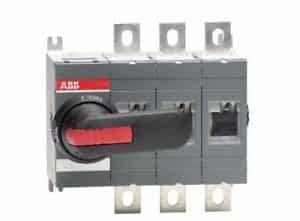
thanks for the notes
Asante zakutosha kwa kujulisha tofauti za vizuia mathara ya umeme kwenye majumba na viwandani balikiwa Sana kutoka Bunju b daresalamu Tanzania
Hi,
From this article i got a brief information about the differences between MCB, MCCB, RCCB, RCBO. Thanks for sharing.
This is knowledge class about Electrical safety product with out teacher .Well done team engineer who is make this site. Appreciation of your work . Thanks a lot .GOD BLESS YOU